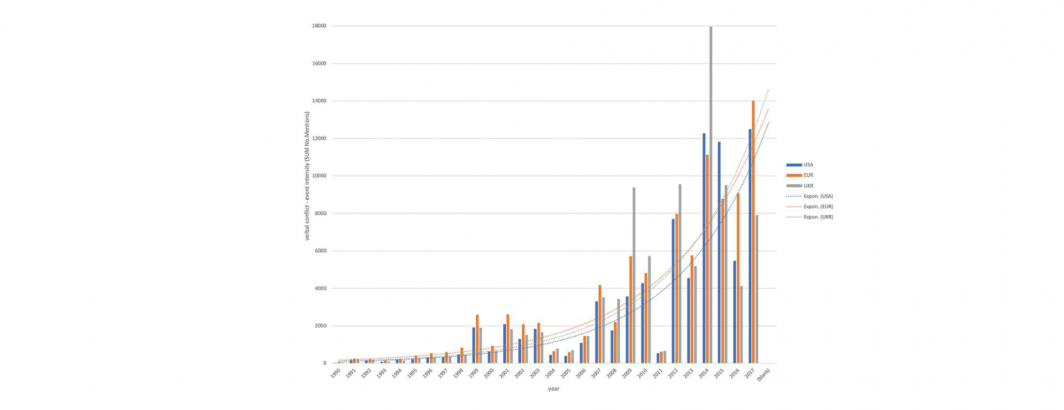
This study by Andriy Tyushka, European Neighbourhood Policy Chair, College of Europe in Natolin in Warsaw, Poland, uses GDELT to explore the ways in which Russia is contesting Europe's self-defined identity:
Europe has always occupied a special place in Russia’s storytelling of the ‘self’ and the ‘other’ – from Russia being portrayed as ‘part of Europe’ to it being cast as a ‘better Europe’ or an alternative to Europe that stands for conservative values or a different model of regional cooperation, including such as the Eurasian Economic Union. This article explores the recent shift from discursive contestation to subversion – all around the conflict in Ukraine and in a broader framework of a Russian matryoshka-style struggle against Western liberal-democratic hegemony and the EU’s liberal identity, power and influence in what Russia regards as its’ ‘near abroad’. It demonstrates the growing weaponization of the narrative replacing the pursuit of conventional narrative-contestation practices. In doing so, the article develops an original methodology combining qualitative (content-analytical) and quantitative (digital corpus-analytical) narrative enquiry, including the use of the GDELT-powered ‘big data’ analysis.